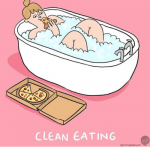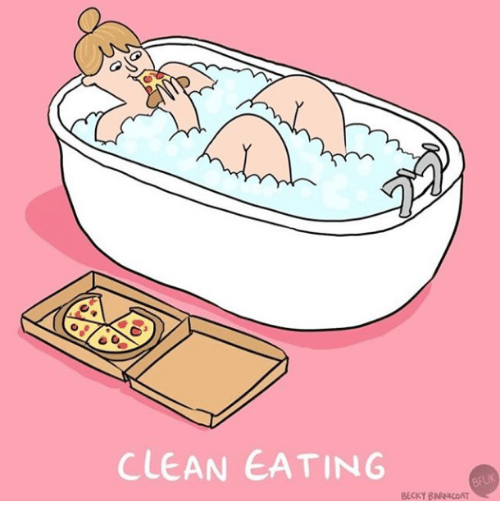Eating right and healthy living is paramount. Nourishing ourselves with fruits and vegetables and whole foods as opposed to processed food is always recommended. Currently eating healthy or rather what is commonly known as “clean eating” has overtaken the lives of the “health fanatics”. In the era where image is characterized as the standard in our society, the fixation on health is quickly becoming an obsession to many. It is possible to take a healthy diet too far. In fact, the World Health Organization estimates that at least 3 in 10 people currently have a compulsive eating disorder termed as orthorexia nervosa. Although this disorder has not yet been clinically defined as part of the psychological illnesses, the number of people who are slowly resulting into it is alarming.
Basically, orthorexia nervosa relates to eating habits that reject a variety of foods for not being “pure” or not meeting the standards of the healthy pedestal that they have set for themselves. These standards fixate a person on “righteous eating” far beyond being conscious of what they are putting into their body. Just like a person who may have the symptoms of an obsessive-compulsive disorder, those with orthorexia are predisposed to a hyper-awareness that breeds ritualistic feeding.
Orthorexic people are normally unaware of their condition and only realize their struggles when it is too late. To know whether you have the disorder you might find yourself doing either or all the following:
- Bury yourself in food research- It’s one thing to be keen on food labels when purchasing food to ensure you optimize your healthy feeding habits, and it is another to bury yourself in hours of thought about the ingredients in your food and over planning meal preparation. A person slowly fading into the disorder will for example, make their eggs for about 5 times in one instant before they can settle on the “right” or “clean” way to make them.
- Refuse to eat a broad range of food categories. It is normal to pass on some foods because you may not like the way they taste or make you feel. With orthorexia however, you tend to drop a tremendous range of categories of foods from your diet. This would be for example, avoiding certain types of grains, foods that do not seem “healthy”, foods with preservatives and the list could go on. Such people also avoid eating food from the restaurant, and would rather take their food in social gatherings.
- The fear of losing control is essentially what drives a person with orthorexia. They feel that they are doing the right thing only by eating healthy. They are frustrated and very afraid of one meal that may jeopardize their “clean” eating routine. They cannot trust anyone else to prepare their meals, and even tasting meals made by other people is disastrous.
- A person who has orthorexia is also overly critical of their friends’ food choices without having any rational explanation about it. They have no scientific reason as to why some food choices are inferior to others and vice versa.
- In the end, this becomes a vicious cycle that preoccupies their life. Their over-restrictive habits cause extreme malnourishment, loss of muscle and to some anemia, amenorrhea, and mental illness in extreme cases.
Practicing a healthy habit simply because it is said to be clean or the healthiest may not always end up well. It is therefore vital to ensure that whatever practice is taken up is done in moderation and does not harm your health overall.
I know you may have questions. Post them here.











